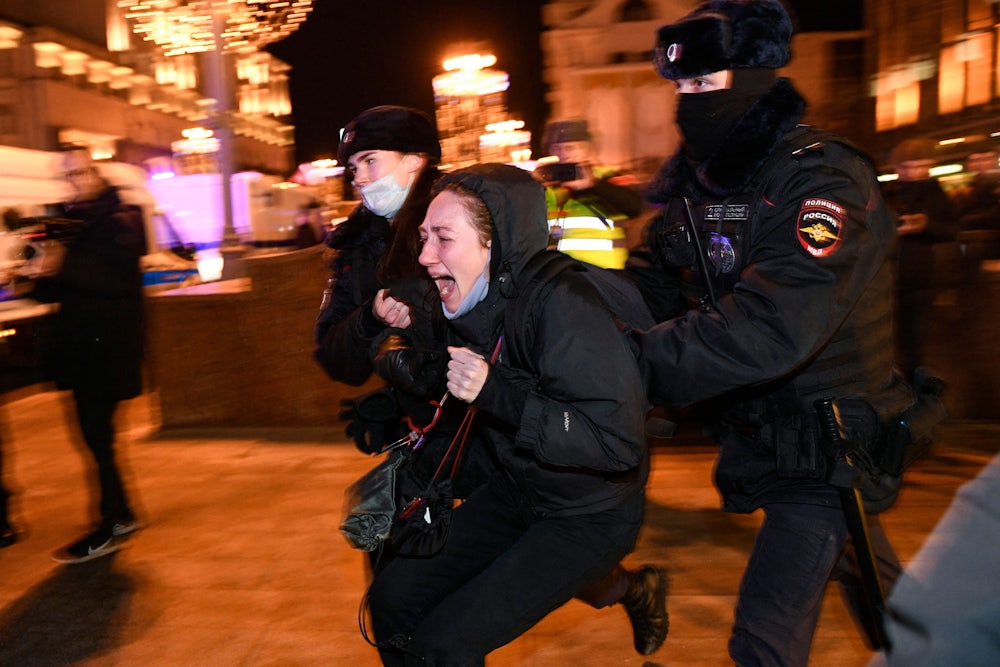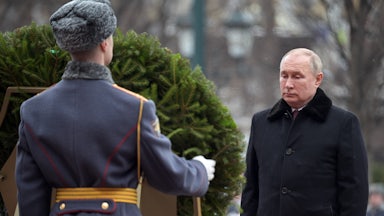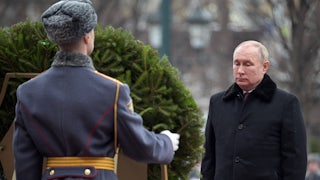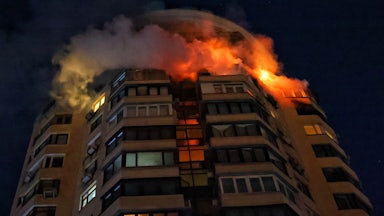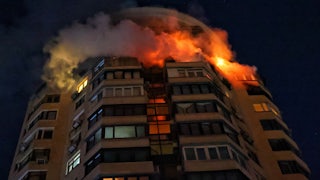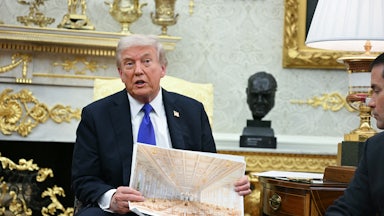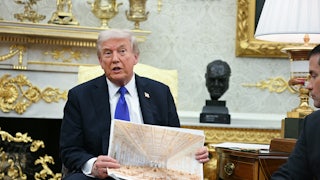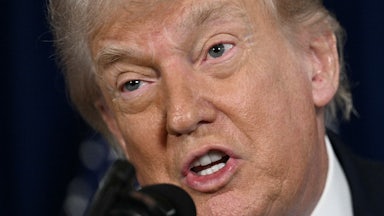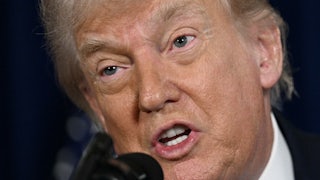Last Friday, as Russian troops seized control of Europe’s nuclear power plant and Russian missiles rained down on civilian areas across Ukraine, Russia’s parliament passed a new law banning “fake news” about the country’s armed forces and its invasion of Ukraine. In a particularly Orwellian twist, stating the truth plainly—that Russia is invading Ukraine and that a war is raging—is now illegal. Those deemed guilty face up to 15 years in prison.
“Fake news,” of course, has long passed into the part of the lexicon reserved for cynical clichés. Briefly a term referring to the raft of misinformation circulating online, it has since been adopted by demagogues and strongmen who, following in the famous example of the Trump administration, deploy it as a way of delegitimizing news sources. In Russia, this shift has reached its apogee: “Fake news” has been weaponized as a means of restricting the press and suppressing the truth by brutal means. It is the latest of several desperate and destructive attempts by Putin to keep the truth of the war from reaching the Russian people.
For all of the talk about how Ukraine has been winning the “information war,” in Russia, Putin’s latest reboot of dezinformatsiya has been effective—and destructive. Even if the war in Ukraine were, by some miracle, to end quickly, Russia’s crackdown on the media and public discourse will likely endure. Autocrats like Putin rarely return freedoms that they have taken away. The threat to Russia’s free press, which has dealt with years of repression, may be existential.
The suppression of the free press is also causing trouble for Western outlets. Several American and European journalists have left the country in recent days and weeks. The Russian government, meanwhile, has also banned several foreign news outlets, including the BBC, from being read in the country. At the same time, Russia’s own propaganda efforts are in overdrive. The country has for years invested heavily in pushing online misinformation. Its official outlets are, unsurprisingly, also working overtime to cover up the country’s sputtering invasion. While Ukrainian officials have suggested that thousands of Russians have perished in the invasion, Russia’s own Ministry of Defense acknowledges only a few hundred casualties. The Russian government is insisting that it is not at war, nor is it invading Ukraine: an absurd claim if you have seen even a few seconds of footage from civilian areas in places like Kharkiv or Kyiv. It also insists that it is merely engaged in a “special military operation” targeting nationalists who are oppressing Russian nationals and citizens in the country.
For what little remains of Russia’s independent press, these are harrowing times. Last October, Dmitry Muratov won a Nobel Peace Prize for his fearless work as co-founder and editor in chief of the newspaper Novaya Gazeta. Now he’s being forced to scale back his paper’s reporting on the war. “Military censorship in Russia has quickly moved into a new phase: from the threat of blocking and closing publications (almost fully implemented) it has moved to the threat of criminal prosecution of both journalists and citizens who spread information about military hostilities that is different from the press releases of the Ministry of Defense,” the paper’s editors wrote in a letter to its readers.
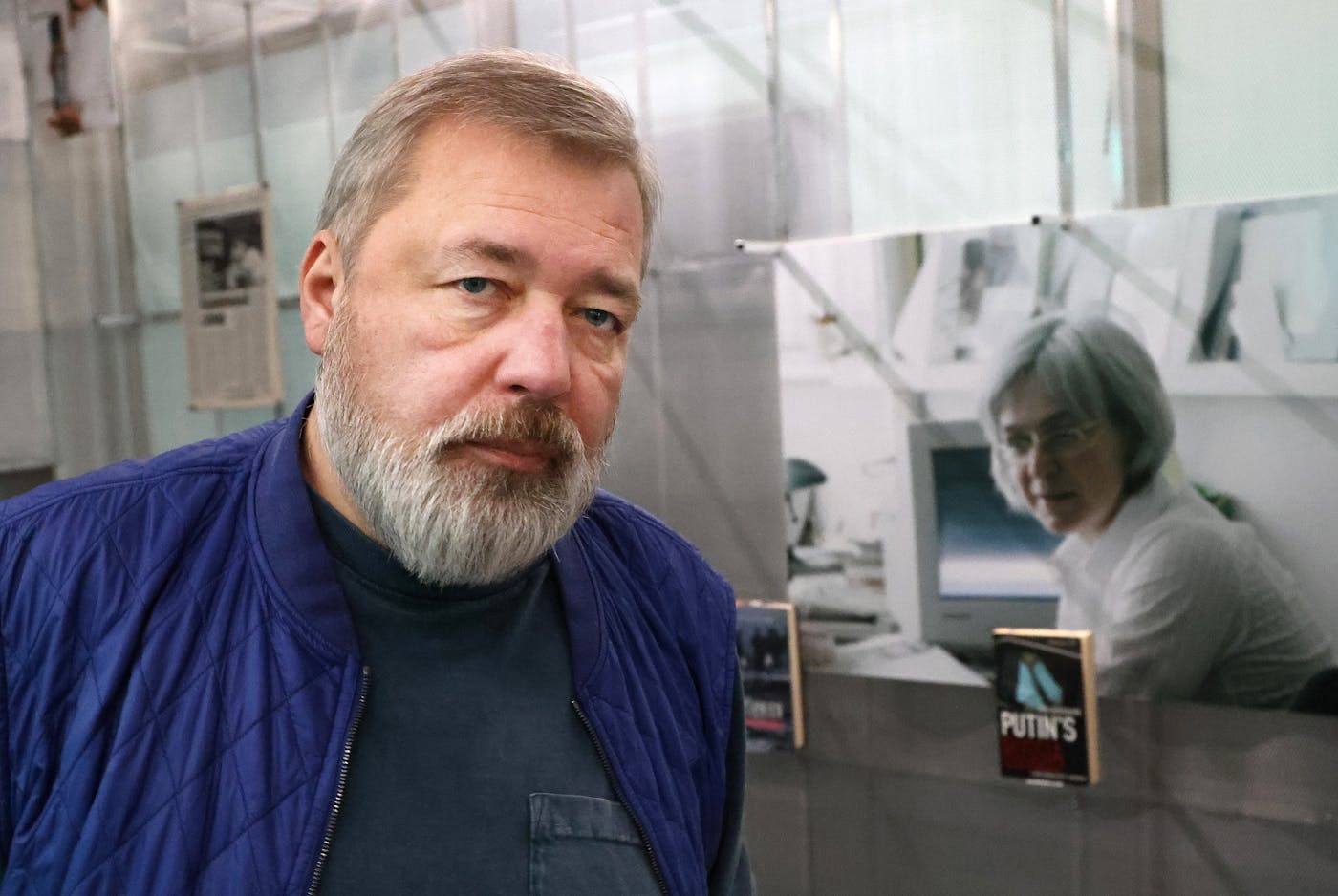
Muratov has nevertheless remained committed to telling the truth. “We received an order to ban the use of the words ‘war,’ ‘occupation,’ ‘invasion,’” he told The New Yorker’s editor David Remnick in an interview. “However, we continue to call war war. We are waiting for the consequences.” Novaya Gazeta was one of at least 10 Russian news outlets to receive such orders.
The Russian television network Dzohd (also known as TV Rain)—the subject of the indispensable recent documentary F@ck This Job and the country’s only independent TV network—was taken off the air last week after being accused of spreading misinformation. “We need strength to exhale and understand how to work further. We really hope that we will return to the air and continue our work,” founder Natasha Sindeeva said in a statement. The network played Swan Lake before going dark—a nod to a 1991 incident in which several Russian broadcasters aired the ballet instead of showing their audiences the civilian unrest that arose in the wake of the attempted coup against Mikhail Gorbachev.
Meanwhile TVRain, the last independent media outlet operating in Russia, has shut down — here's the last few minutes of its broadcast, poorly Google Translated. It then cut to Swan Lake, which has particular relevance: https://t.co/XXtUHroZkt pic.twitter.com/Iq7HSal7FW
— Timothy Burke (@bubbaprog) March 3, 2022
This repression is a culmination of years of efforts to restrict Russia’s fledgling independent press outlets. But it has a dire, apocalyptic feeling. The country’s journalists have reported amid violence and threats for years. Finally, Putin and his cronies have seized the opportunity to silence the few outlets in the country brave enough not to parrot the official line. And Putin’s information blackout has already had a deleterious impact on the Russian public: As The New York Times reported this week, Ukrainians under siege are “encountering a confounding and almost surreal backlash from family members in Russia, who refuse to believe that Russian soldiers could bomb innocent people, or even that a war is taking place at all.”
This has also coincided with the rise of a pro-war movement, and the symbology, centered around the letter Z, that has emerged with sudden force in Russia. This is the dark twin of the efforts to restrict the press, an outgrowth of Russia’s frantic propaganda efforts and attempt to spin a brutal war as an “operation” built out of necessity. The seeming chaos and contradictions—a simultaneous push to stoke nationalist fervor for an invasion while dominating the media landscape in an effort to downplay the war—is quintessential Putin: As the Rand Corporation’s Christopher Paul and Miriam Matthews noted, “Russian propaganda entertains, confuses and overwhelms the audience.” But what’s afoot now in Russia heralds a new era in the country, one in which nothing but the official line will be allowed to circulate. It will have a persistent and pernicious effect on Russia long after the current conflict is resolved.
